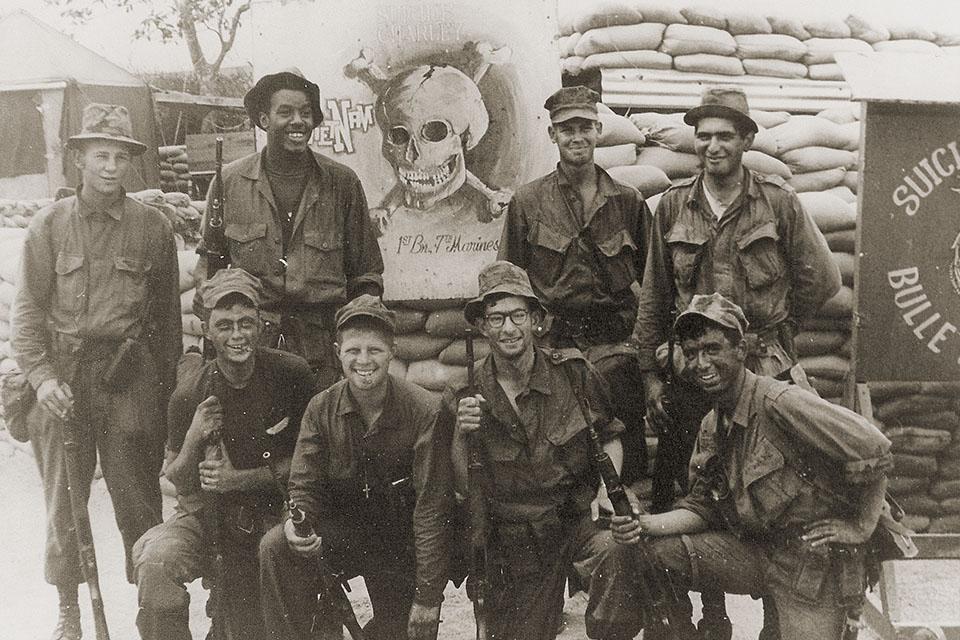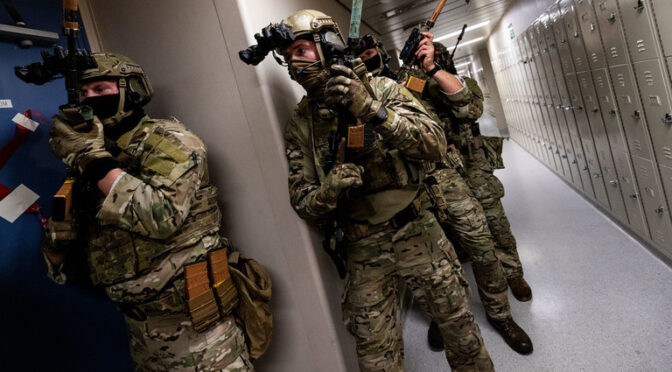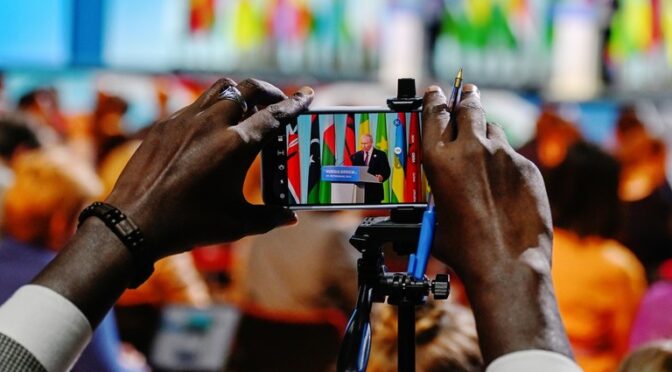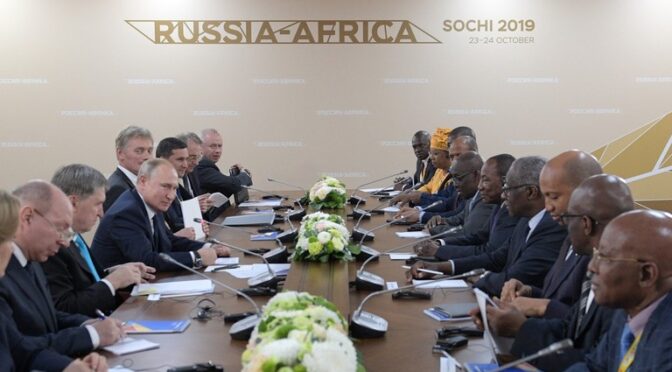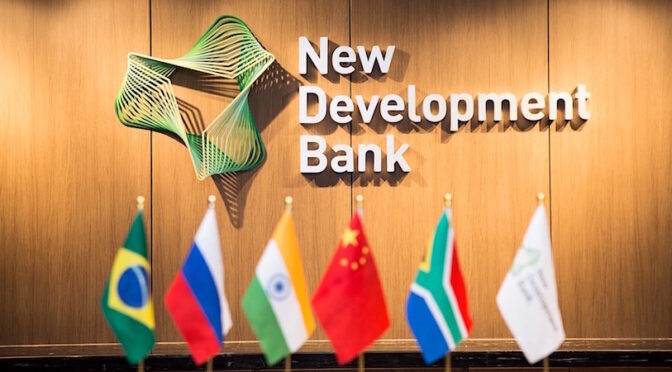Iraqi resistance faction pledges to “smash” US initiatives in the area. An Iraqi resistance faction has declared its intention to obliterate American initiatives with harmful consequences in the region.
All posts by Geopolitics101
BRICS Summit 2023: World Leaders Unveil Bold Visions for Global Growth and Cooperation
Leaders from the BRICS countries, namely Brazil, Russia, India, China, and South Africa, delivered their speeches on the first day of the BRICS Summit 2023 in Johannesburg, South Africa. During this summit, the leaders discussed their vision for the future of the BRICS group and addressed important global issues.
Continue reading BRICS Summit 2023: World Leaders Unveil Bold Visions for Global Growth and CooperationFrom Industrial Powerhouse to the Brink: The Shocking Factors Behind Germany’s Decline
Perhaps justifiable is the fact that Germany, which has significantly driven the EU’s eastward expansion and faithfully followed American neoconservatives in aggressively expanding NATO toward a retreating Russia, is currently facing its most severe economic crisis since World War II.
Continue reading From Industrial Powerhouse to the Brink: The Shocking Factors Behind Germany’s DeclineNeocons and Other Malignancies in the American Body Politic
It is interesting to observe how, over the past twenty-five years, the United States has become not only a participant in wars in various places on the planet but has also evolved into being the prime initiator of most of the armed conflict.
Continue reading Neocons and Other Malignancies in the American Body PoliticAlgeria Shuts Down French Request to Use Airspace for Controversial Niger Operation
Algeria Declines French Appeal to Utilize Airspace for Niger Operation, Disputed by Paris
Continue reading Algeria Shuts Down French Request to Use Airspace for Controversial Niger OperationCentral Asia is the Prime Battlefield in the New Great Game
So long as Russia and China remain the region’s dominant political and economic powers, the Central Asian heartland will remain a US and EU target for threats, bribes, and color revolutions.
Continue reading Central Asia is the Prime Battlefield in the New Great GameBRICS Summit 2023: Explosive Talks on Ditching Dollar Dominance with New Global Currency!
The 15th annual BRICS summit commenced on August 22nd as official representatives from various nations gathered in Johannesburg, South Africa.
Continue reading BRICS Summit 2023: Explosive Talks on Ditching Dollar Dominance with New Global Currency!China’s Bold Move: BRICS Aims to Dethrone G7 at Upcoming Summit
China intends to advocate for the transformation of the BRICS alliance into a robust competitor against the G7 during its imminent summit in South Africa, as reported by the Financial Times on Sunday.
Continue reading China’s Bold Move: BRICS Aims to Dethrone G7 at Upcoming SummitBRICS Unleashes Game-Changing Plan for a Fair and Multipolar World Order
The foreign minister of Russia has asserted that the global community is weary of the tactics of coercion and pressure employed by Western elites.
Continue reading BRICS Unleashes Game-Changing Plan for a Fair and Multipolar World OrderHow Iran’s David vs. Goliath Warfare Strategy Outsmarts US Warships in the Persian Gulf
In recent weeks, there has been a significant increase in tensions in the Persian Gulf due to the United States’ buildup of warships, military aircraft, and troops.
Continue reading How Iran’s David vs. Goliath Warfare Strategy Outsmarts US Warships in the Persian GulfSUMMER OF THE HAWKS
Wishful thinking is still the rule among Biden’s foreign policy team, as the slaughter in Ukraine continues. It’s been weeks since we looked into the adventures of the Biden administration’s foreign policy cluster, led by Tony Blinken, Jake Sullivan, and Victoria Nuland. How has the trio of war hawks spent the summer?
Continue reading SUMMER OF THE HAWKSUnprecedented Uproar: How One Country Song is Igniting a New Revolution Against the Elite
Eleven days prior, a coal country ballad titled “Rich Men North Of Richmond,” authored by Oliver Anthony, found its way to YouTube. This song has now transformed into a political anthem resonating with blue-collar individuals across the United States, as the nation braces itself for the upcoming 2024 presidential election season.
Continue reading Unprecedented Uproar: How One Country Song is Igniting a New Revolution Against the EliteThe West’s Attempt to Create a Ukrainian Scenario in Niger is Faltering
African leaders are not suicidal, unlike their counterparts in Kiev, and are thus less willing to do NATO’s bidding.
Continue reading The West’s Attempt to Create a Ukrainian Scenario in Niger is FalteringNiger is Far from a Typical Coup
Rather than send troops in response to the coup, France and the U.S. seem to favor a “Rwanda” type solution applied in Mozambique earlier this year, writes Vijay Prashad. Only this time ECOWAS would apply force.
Continue reading Niger is Far from a Typical CoupMSM TV “Military Analysts, Experts” Paid by Defense Industrialists
A whopping 85% of media quotes on US military involvement come from someone paid by the defense industry.
Continue reading MSM TV “Military Analysts, Experts” Paid by Defense IndustrialistsThe Biggest Vietnam War Story that Americans Don’t Talk About
South Korea’s government is finally being held to account for the carnage its mercenary troops inflicted on Vietnamese civilians. But no one seems to be reckoning with our complicity in the atrocities.
One day after my mother informed my father of her pregnancy with me, he received orders from the US Marine Corps to report to Vietnam. One month later, he was patrolling Quảng Nam Province with a brigade of South Korean Marines nicknamed the “Blue Dragons.”
I’ve long yearned to piece together a story of how the faraway events coinciding with my gestation shattered our family after his return.
The war’s brutality has never been anybody’s secret. By now, the 50th anniversary of the Paris Peace Accords, no aspect of any feature of the conflict would seem to remain unexplored. Yet my boyhood quest to mine the details of what my father did in Vietnam has foundered over the first and most general question: What were South Korean Marines doing there?
A clue tapped me on the shoulder earlier this year. In February, a district court in Seoul ordered the government of South Korea to pay compensatory damages to Nguyễn Thi Thanh, a Vietnamese woman, in a lawsuit she brought over an event that had taken place 55 years earlier, nearly to the day. On the morning of Feb. 12, 1968, about 100 combat troops from the Republic of Korea’s 2nd Marine Brigade poured into Phong Nhị in Quảng Nam Province.
The Blue Dragons set homes ablaze and then proceeded to shoot, stab, drown, and hack to death 70 women, children, and infants. The butchery left no uninjured survivors. Nguyễn, 8 years old, took a bullet to the stomach. The rest of her family perished.
The South Korean government has appealed the verdict, which marked the first time any court in South Korea had attributed culpability for a massacre of Vietnamese civilians.
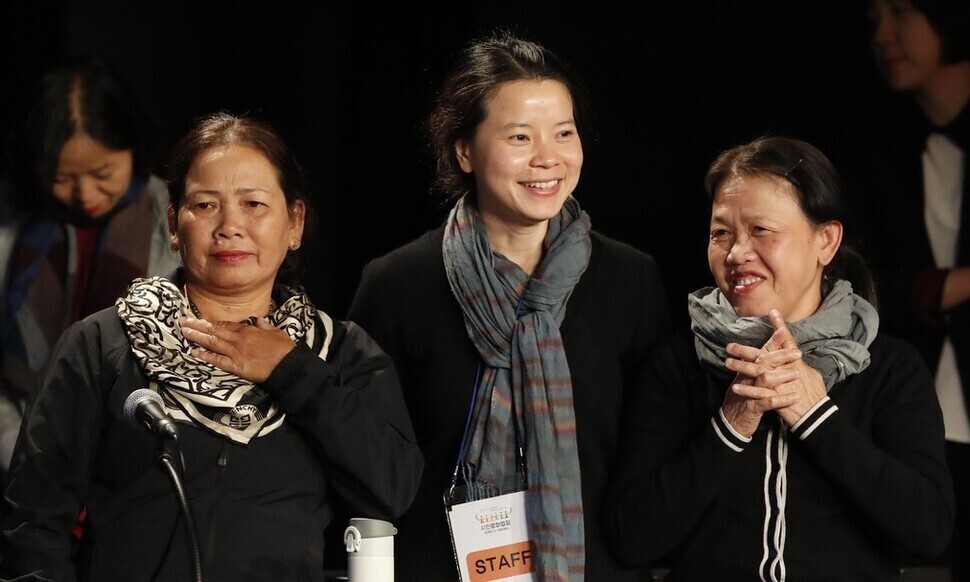
More such lawsuits are likely to be brought. Since 1999, journalists, scholars, and veterans in Seoul have documented more than 80 similar massacres of a total of (at least) 9,000 civilians in three provinces. “There’s a strong sense among the survivors that the problem has to be resolved before their generation passes on,” Ku Su-jeong of the Korean-Vietnamese Peace Foundation said in 2016.
Only a few US news outlets reported Nguyễn’s victory. The silence bespeaks a curious subtraction of memory.
Between 1965 and 1972, South Korea contributed 325,517 combatants at our behest. (Australia’s 60,000 rated the next highest contribution by an American ally. Some 2.7 million Americans served.) South Korean belligerents formed the largest phalanx of foreign fighters in Vietnam other than ours, and they even outnumbered ours in the final two years.
Most Americans today, however, have forgotten the little our predecessors learned about this feature of the conflict at the time. Of tens of thousands of books in English about the Vietnam War, not one is dedicated to South Korea’s participation.
The Vietnam commitment marked the first time in Korea’s 4,000-year history that its fighters left the peninsula to wage war. The American and South Korean governments conspired to make it appear as if these deployments answered a call that came directly from South Vietnam. But in 1970 a US Senate committee detailed a mercenary motive in 2,000 pages of documents appended to its report of hearings into the matter.
Our government footed the entire cost of the South Koreans’ ammunition, aircraft, and weapons, trained and quartered their officers, built barracks for their infantry, and paid bonuses at a rate 23 times as high as their base pay for the duration of the war.
A document called the Brown Memorandum — named for Winthrop G. Brown, the US ambassador to the Republic of Korea — codified the terms of a business transaction. In addition to paying for war materiel and troop bonuses and providing security guarantees against North Korea, our government agreed to purchase all goods and services for the South Korean forces exclusively from South Korean businesses.
The windfall, totaling more than $1 billion, rapidly modernized the country’s heavy industry. Our money contributed 4 percent of South Korea’s gross domestic product and 20 percent of its foreign exchange earnings. President Park Chung Hee, having seized power in a 1961 coup d’état, fortified authoritarian rule in the bargain.
In March 1973, our aircraft removed the last of the South Korean troops to a home country rejuvenated by war profiteering. With its end, President Park turned to formal dictatorship. Western economists have been calling the transformation of South Korea a “miracle” ever since.
Shuffled Off Stage
The South Koreans based their detachment in the Central Highlands, a region thick with enemy forces. The Tiger and the White Horse divisions secured the coast and disrupted supply lines. The Blue Dragon Marine brigade conducted search-and-destroy missions in villages and hamlets. American liaisons such as my father escorted the brigade in the countryside, coordinating helicopter and gunship sup Blue Dragon contingent as “a troubleshooting outfit.”
Some of the trouble they shot had been herded into refugee camps. Survivors reported members of the brigade baiting children into groups with candy and cake and then turning machine guns and grenade launchers against them. Other survivors alleged the Blue Dragons beheaded five children in 1966 and deposited their skulls on a highway as a warning to insurgents.
American newspapers celebrated the florid cruelty of our mercenaries. “Korean Marines are Legends,” crowed the Copley News Service on Nov. 11, 1966, describing them as “larger-than-life figures with dusky yellow skins, high cheekbones, and almond-shaped eyes.” The dispatch quoted US field commanders praising their exemplary methods of terror: “After every fight they skin a few of the dead and leave them behind or cut off their ears and put up their heads on bamboo poles.”
A Scripps-Howard report endorsed the logic of their bloodletting: “Their rough tactics discourage the Viet Cong from attacking them. When Koreans receive fire from a village, they are likely to level it and spread word that the same thing will happen to the next village from which they receive harassment.”
As discipline and morale in our forces wobbled, the South Korean Marines stood firm. The news service UPI extolled them as “one of the toughest fighting units left in Vietnam” in 1971. Their unsentimental ferocity chiseled proof of concept into America’s military strategy. “The ROK Marine pacification program is considered a success,” UPI wrote, “and the corps has gotten over an ugly incident at Barrier Island near Da Nang in which it was reported that many civilians were massacred during a clearing operation.” The next month, as the Blue Dragons began to draw down, their commander, Brigadier General Hur Hong, assured the Los Angeles Times his men’s thirst for blood wasn’t slaked: “Now we would like to go back to Korea and cut off the head of Kim Il Sung.”
This May, as the verdict in Nguyễn Thi Thanh’s lawsuit roiled Seoul, South Korean veterans attended a Vietnam War commemoration ceremony in Washington, D.C. Secretary of the Navy Carlos Del Toro thanked them for their service. To the bare fact of that service, all the most comprehensive and acclaimed histories of the war have given a few grudging sentences, if any.
The latest doorstop, Carolyn Woods Eisenberg’s “Fire and Rain,” appeared this year with an “avalanche of material” declassified in recent decades. Eisenberg omits South Korea entirely. Journalists, novelists, and filmmakers have perpetuated the erasure. The Library of America’s 1,600-page anthology “Reporting Vietnam” affords the subject fewer than 10 words. Ken Burns and Lynn Novick’s documentary “The Vietnam War” runs 18 hours and features interviews with nearly 100 veterans “from all sides.” No South Koreans appear.
Our commentators still tend to interpret the “loss” of Vietnam as a “tragedy,” a fateful concatenation of domestic politics, diplomacy, and military strategy. A rote recitation of the My Lai massacre of 1968 often stands in for the unmentionable fact of many more atrocities committed by US troops. (In 1969, the Pentagon’s Vietnam War Crimes Working Group substantiated 320 massacres and documented another 500 or so allegations.) South Korea’s have been shuffled off stage along with the rest, so that they don’t disturb the dignified musings of tragedy.
The silence deprives us of a framework for the necessary question: What responsibility do we bear for atrocities committed by South Koreans in our Vietnam War? The US Army’s Inspector General found “some probability that a war crime was committed” by them in Phong Nhị on Feb. 12, 1968, the subject of the court ruling in Seoul this year.
“After a limited investigation,” General Westmoreland averred to Lieutenant General Chae Myung-shin, commander of South Korea’s forces in Vietnam, “it was recognized that this matter is more properly a concern of your country, as a signatory to the Geneva Conventions, and our investigation was terminated.” To my knowledge, nobody in a position to do so has ever undertaken a legal or moral inventory of our use of mercenaries in the war.
What my 21-year-old father saw and did with the Blue Dragons he divulged just once, in a private conversation with my mother over my crib. The marriage didn’t last much longer. To his final breath, however, he declined to discuss with me what turned out to be the most important event for both our lives. Maybe he could never find the words to express the meaning of his complicity in extreme violence.
Or maybe he feared I would pity him as a victim of circumstance, denying him moral agency. Either way, the wedge of conscience that separated us never lifted — and cheated us both.
In “Un-nameable Objects, Unspeakable Crimes,” James Baldwin wrote that “the great force of history comes from the fact that we carry it within us, are unconsciously controlled by it in many ways, and history is literally present in all that we do.” Some stories never end. Others never begin.
Rush to Purchase Burned Properties in Hawaii: High Society’s Obsession with Material Gain
Amid the aftermath of the fires in Hawaii, a surprising frenzy to buy up the recently scorched properties has emerged. This phenomenon is shedding light on the materialistic and profit-driven tendencies prevalent in society today.
Continue reading Rush to Purchase Burned Properties in Hawaii: High Society’s Obsession with Material GainUkraine Warned of Total Territorial Loss in Ongoing Conflict
Belarusian President Alexander Lukashenko expressed concern that Ukraine could face the loss of its entire territory if it continues its current path of conflict.
Continue reading Ukraine Warned of Total Territorial Loss in Ongoing ConflictCIA Knows US Can’t Win in Ukraine
The CIA reportedly cautioned US Secretary of State Antony Blinken that Ukraine’s ongoing attempt to counter Russian forces would not be successful.
Continue reading CIA Knows US Can’t Win in UkraineIndia Not Sending G20 Summit Invitation to Ukraine
Indian Foreign Minister Subrahmanyam Jaishankar has restated the stance of New Delhi regarding Ukraine’s potential involvement in the upcoming G20 summit scheduled for September.
Continue reading India Not Sending G20 Summit Invitation to UkraineThe Israel Lobby’s Useful Idiot
To stand up to Israel has a political cost few, including Robert F. Kennedy Jr., are willing to pay. But if you do stand up, it singles you out as someone who puts principles before expediency.
Continue reading The Israel Lobby’s Useful IdiotPentagon’s Ongoing Weaponization of “High Priority” Pathogens Raises Alarm for New Global Pandemic
The Pentagon’s interest lies primarily in investigating infections that could potentially serve as weapons, as asserted by Moscow. According to Lieutenant General Igor Kirillov, the commander of Russia’s Nuclear, Biological, and Chemical Defense Forces, the US military is actively examining pathogens that could be employed as biological weapons.
Shocking Report Reveals UK Special Forces’ Covert Missions in 19 Countries, Behind Child Soldiers
A recent study conducted by Action on Armed Violence (AOAV), a London-based charitable organization that focuses on global armed violence research, revealed that the United Kingdom has dispatched its special forces to 19 different countries since 2011.
Secretive Operation: UK Allegedly Forms Sabotage Group to Disrupt Russia’s African Partnerships
The UK’s foreign intelligence agency MI6 has reportedly readied a contingent of operatives with the intention of disrupting Russia’s increasing economic collaboration with African nations, as per an undisclosed source in the military-diplomatic domain who spoke to RIA Novosti and TASS on Wednesday.
Continue reading Secretive Operation: UK Allegedly Forms Sabotage Group to Disrupt Russia’s African PartnershipsDefense Minister Warns of Direct Russia-NATO Conflict, A Global Showdown Between West and East
Belarusian Defense Minister Viktor Khrenin delivered a stark message at the International Security Conference in Moscow, asserting that Russia and Belarus could inevitably engage in a direct confrontation with NATO in the future.
Continue reading Defense Minister Warns of Direct Russia-NATO Conflict, A Global Showdown Between West and EastSoros Going Bankrupt: Open Society Foundations Announce Shocking 40% Staff Cut
George Soros’ Open Society Foundations, now under the control of his son Alexander, will significantly curtail its operations within the European Union.
Continue reading Soros Going Bankrupt: Open Society Foundations Announce Shocking 40% Staff CutUS Military’s Secret Bioweapons Research in Ukraine and China Confirmed by RFK Jr.
The US military allegedly contracted some of its research on biological weapons to the government established by the 2014 coup in Kiev, according to statements made by Robert F. Kennedy Jr., a prospective Democratic candidate for the presidency.
Russia is Setting Up An “AfroVillage”
The Moscow and Tver Regions are preparing to welcome 3,000 families from South Africa. In a rural area situated roughly halfway between Moscow and St. Petersburg, an “African village” is in the works as part of a five-year pilot program initiated by the African International Congress (AIC) in Russia. This project aims to settle a significant number of migrants from South Africa.
Continue reading Russia is Setting Up An “AfroVillage”Maidan ‘Midwife’ Victoria Nuland Deployed to Africa
The new military leadership in the country is aware of the potential dangers of engaging the services of the defense contractor, according to Victoria Nuland.
Continue reading Maidan ‘Midwife’ Victoria Nuland Deployed to Africa3,000 US Troops Deployed to Middle East
The Middle East has witnessed a recent deployment of numerous American troops and extra naval resources by the US military. The objective of this deployment is to discourage Iranian forces following allegations by Washington that Tehran has engaged in disruptive actions such as harassing commercial vessels.
Continue reading 3,000 US Troops Deployed to Middle EastEmerging New Political Order: Niger’s Military Coup d’Etat
The latest political situation unfolded in Niger, the unexpected removal of democratically-elected President Mohamed Bazoum late July and the deepening differences in perception across Africa explicitly shows Africa’s level of political illusions and, practical reality towards attaining unity dimension in Africa.
Continue reading Emerging New Political Order: Niger’s Military Coup d’EtatWhy Niger is A New Front in The Modern Cold War
A coup in a poor African nation is not unheard of, but the modern-day geopolitical context gives it global significance.
Continue reading Why Niger is A New Front in The Modern Cold WarNew Files Reveal MKULTRA’s Terrifying Reach: Ethnic Bioweapons, Disturbing Experiments
In a groundbreaking investigation, renowned anthropologist Orisanmi Burton has blown the lid off a dark chapter in CIA history. Classified Agency files, recently obtained through Freedom of Information laws, expose shocking ties between the infamous MKULTRA program and nightmarish experiments on prisoners of color within the United States.
Continue reading New Files Reveal MKULTRA’s Terrifying Reach: Ethnic Bioweapons, Disturbing ExperimentsAfrica Rising: France Loses Its Uranium Meal Ticket in Niger
Paris has vowed to protect its interests in the country, which cut off supplies of the critical material after a coup
Continue reading Africa Rising: France Loses Its Uranium Meal Ticket in NigerAfrica Rising: Niger Bans Uranium and Gold Exports To France
Niger’s military authorities, who took power in a coup last week, have banned uranium and gold exports to France, with immediate effect.
Continue reading Africa Rising: Niger Bans Uranium and Gold Exports To FranceRussia is Making Its Biggest Geopolitical Shift in 300 Years
The choice of St. Petersburg to host last weeks Russia-Africa summit was no accident. It was a symbolic move.
Continue reading Russia is Making Its Biggest Geopolitical Shift in 300 YearsGeopolitical Chessboard Shifts Against US Empire
The geopolitical chessboard is in perpetual shift – and never more than in our current incandescent juncture.
Continue reading Geopolitical Chessboard Shifts Against US EmpireRussia is Ready for Confrontation with NATO | Putin
The Russian president states that Moscow has no desire for a confrontation with the Western-led bloc but is prepared for any potential developments.
Continue reading Russia is Ready for Confrontation with NATO | PutinRussia To Assist Nigeria in Revitalizing Its Steel Industry
The largest steel mill in the African nation was constructed through a collaboration with the Soviet Union. Over the years, Russia has remained a reliable ally for Nigeria, and the two countries have developed a strong government-to-government relationship.
Continue reading Russia To Assist Nigeria in Revitalizing Its Steel IndustryThe Russia-Global South Connection: Africa as Strategic Partner
Moscow now seems to enjoy all it takes to build a fruitful, Global Majority-centered strategic partnership.
Continue reading The Russia-Global South Connection: Africa as Strategic PartnerBiden Makes the CIA Director Member of His Cabinet
This is very significant because the CIA, considered to be the Puppetmaster, used to be content playing its game from behind the scenes. However, now it’s front and center, which indicates how significant the threat of losing US hegemony really is for the Deep State, especially under a demented administration facing a lot challenges, nowadays.
Continue reading Biden Makes the CIA Director Member of His CabinetWestern Deep State Panics They Might Lose Indo-Pacific
A significant diplomatic effort aimed at countering Beijing’s influence in the Indo-Pacific region is currently in progress, and it is evident from the simultaneous visits of Western leaders to the once-neglected islands in the area.
Continue reading Western Deep State Panics They Might Lose Indo-PacificHere’s what Russia can offer Africa
Moscow has something extremely valuable to offer countries across the continent.
Continue reading Here’s what Russia can offer AfricaPutin: Joining Russia and Africa Efforts for Peace, Progress and a Successful Future
On July 27–28, St Petersburg will host the second Russia-Africa Summit and Russia-Africa Economic and Humanitarian Forum.
Continue reading Putin: Joining Russia and Africa Efforts for Peace, Progress and a Successful FutureNeocons Want War with China
It was a photo op for the ages: a visibly well-disposed President Xi Jinping receiving centenarian “old friend of China” Henry Kissinger in Beijing.
Continue reading Neocons Want War with ChinaUS Actively Opening A Second Theater of Tension vs. China
The US is currently escalating tensions in the Korean Peninsula in an attempt to provoke a response from China that would lead to South Korea’s increased military acquisition of new weapons, similar to what war merchants did to Taiwan much earlier.
Continue reading US Actively Opening A Second Theater of Tension vs. ChinaIs this Why Biden Has America Involved in the War in Ukraine?
Joe Biden is a criminal and is compromised! And he is leading us into WW3 because Zelenskyy has proof of more Biden crimes.
Continue reading Is this Why Biden Has America Involved in the War in Ukraine?Multipolar Maneuvering in Indo-Pacific
On Monday, while delivering the keynote address at the annual China Business Summit held in Auckland, New Zealand Prime Minister Chris Hipkins weighed in on the power dynamic in the Indo-Pacific.
Continue reading Multipolar Maneuvering in Indo-PacificRussia Confirms BRICS Will Create A Gold-Backed Currency
The news regarding the BRICS (Brazil, Russia, India, China, and South Africa) implementing their plan to create a new international currency has gained momentum. The currency will be backed by gold, as announced on July 7, 2023.
In a recent meeting in Cape Town, South Africa, the foreign ministers of the BRICS countries, along with representatives from more than twelve nations, emphasized their intention to establish an international trading currency.
This undertaking, involving countries representing around 40 percent of the global population and a combined economic output comparable to that of the United States, has the potential for significant consequences.
Additionally, several other countries, such as Saudi Arabia, United Arab Emirates, Egypt, Iran, Algeria, Argentina, and Kazakhstan, have expressed interest in joining the BRICS alliance.
The main objective of the BRICS countries is to decrease their economic and political reliance on the US dollar, challenging the influence of the US dollar on the global stage. They aim to introduce a new international currency for commercial and financial transactions, replacing the US dollar as the standard means of transaction.
The motivation behind this initiative is clear. The US administration has frequently used the US dollar as a “geopolitical weapon” and engaged in what some refer to as “financial warfare.” Through sanctions and cutting off access to the US dollar capital market and international payment systems, the US has exerted control over enemy nations.
These actions have raised concerns in many non-Western countries, highlighting the political risks associated with holding US dollars. As a result, these countries have started restructuring their foreign reserves by reducing US dollar holdings, diversifying into other currencies, and increasing their gold reserves.
According to the search results, the latest data on gold holdings of BRICS member countries is as follows:
- The BRICS countries have a combined gold reserves of 5,452.7 tons as of the first quarter of 2023, with a market value of around 350 billion US dollars.
- China has quadrupled its gold reserves over the past twenty years, and Russia announced in March 2022 that they were linking the ruble to gold at five thousand rubles per gram and requiring payment for their exports in rubles.
- Several sources suggest that the BRICS countries are exploring the possibility of a gold-backed currency, with a more specific framework potentially being announced during the BRICS summit in South Africa.
- In addition, there have been reports of the BRICS countries mulling the formation of a single gold trade system.
- While the BRICS countries are the second largest owner of gold reserves after the US, it’s unclear whether they have increased their gold holdings in recent years or if there have been any significant changes in their gold reserves.
While specific details about the structure of the new BRICS currency are not yet available, it is worth speculating on potential scenarios. One possibility is the establishment of a new bank, the “BRICS Bank,” funded by gold deposits from central banks within the BRICS alliance. The physical gold holdings would be recorded as assets on the balance sheet of the BRICS Bank and could be denominated as “BRICS gold,” with each unit representing one gram of physical gold.
The BRICS Bank could then provide loans denominated in BRICS gold to exporters and importers. These loans would be funded through credit contracts with holders of BRICS gold, who would transfer their deposits to the BRICS Bank for a designated period in exchange for interest. The BRICS Bank could also accept additional gold deposits from international investors, allowing them to hold interest-bearing BRICS gold deposits.
BRICS gold could potentially serve as international money, an internationally recognized unit of account in global trade and financial transactions. This new de facto gold currency could exist solely as an accounting unit and be redeemable on demand, without the need for physical minting.
However, the successful transition to using BRICS gold as an international trade and transaction currency would likely have significant consequences:
- The demand for gold would likely increase sharply, impacting gold prices not only in US dollars and euros but also in the currencies of the BRICS countries.
- The surge in gold prices would devalue the purchasing power of official currencies, including the US dollar and the BRICS currencies. Prices of goods denominated in these currencies would likely skyrocket, leading to a depreciation of all existing fiat currencies.
- The BRICS countries would accumulate gold reserves, particularly if they maintain trade surpluses. They would be the primary beneficiaries of this currency shift, while countries with trade deficits, particularly the US, would face losses.
The aforementioned points demonstrate the potential disruptive nature of the proposal to create a new international trading currency backed by gold.
The actions taken by the BRICS countries could have a profound impact on the global economic and financial framework, resembling a landslide in terms of changes.
It remains intriguing to observe the approach that the BRICS nations will adopt during their meeting in Johannesburg, South Africa, scheduled for August 22-24.
You’ll Have To Kill Me Before I Stop Exposing Your Pedophile Ring | Jim Caveizel Tells CIA
Hollywood actor Jim Caviezel has made a firm commitment to continue revealing information about the CIA pedophile ring, despite facing multiple assassination attempts. After publicly stating that the CIA is involved in operating the largest pedophile ring in the world, Caviezel claims to have received numerous credible death threats.
Recently, Caviezel appeared on the “Spero Pictures” podcast to send a message to those in the Deep State who are attempting to silence him. This comes after the tremendous success of the film “Sound of Freedom,” which sheds light on child trafficking.
Caviezel addressed a viral tweet from Wall Street Silver, which quoted The People’s Voice report exposing the CIA’s desire to eliminate Caviezel for exposing their global VIP pedophile ring.
The tweet warned that they would make his death appear as an accident. Caviezel agreed with this assessment, suggesting that the CIA uses such tactics to blackmail influential individuals and maintain control over them.
His days are numbered
— Wall Street Mav (@WallStreetMav) June 23, 2023They will make it look like an accident.
He is likely correct, the CIA does this and it is used for blackmailing their assets in high places to keep them in line. pic.twitter.com/om0NCInwDX
Caviezel conveyed a message to the viewers, expressing that he does not fear the intelligence agencies (referred to as “alphabet agencies”), but rather they should fear God.
The actor began by addressing those who perceive him as weak or afraid. He asserted that he is not scared in the slightest. According to Caviezel, he believes that God brought him into Hollywood to pursue acting, and he considers God to be his superior intelligence officer.
He emphasized that God, the greatest and only God, loved him enough to give him a purpose in life. Caviezel reflected on a time when he was at his lowest point, and he stated that he would willingly sacrifice his own life to protect innocent children.
The actor expressed that the horrifying screams he has heard haunt him, preventing him from getting a peaceful night’s sleep. Even at 3 in the morning, he can still hear those distressing sounds.
Jim Caviezel responds to a tweet saying his days are numbered because the CIA will go after him.
— Carrie
He says he’s not suicidal but that it’s possible he could die from an “accident”, like the attempt on his life with the motorcycle “accident” in 2009 after Passion of the Christ.… pic.twitter.com/XP17PkZBM8America
(@carrieksada) July 14, 2023
Caviezel proceeded to imply that the CIA was responsible for a motorcycle accident he had in 2009, suggesting it was a retaliatory act for his involvement in Mel Gibson’s film “The Passion of the Christ.”
He made it clear that he was not intimidated by the attempts made during his work on “The Passion of the Christ” to alter the dominant narrative of the world, stating, “You never scared me. You don’t scare me now.”
Caviezel expressed admiration for individuals like General Flynn and the warriors he has worked with, including SEAL teams, emphasizing that they inspire him.
He criticized the media’s fact-checkers who, in his view, do not put their lives on the line and for spreading negative information about “Sound of Freedom,” a film based on a true story.
He questioned the credibility and qualifications of fact-checkers, humorously asking if they attended “fact-checking school” as a form of higher education.
Despite its limited budget and modest marketing distribution, “Sound of Freedom” has achieved remarkable success, grossing over $80 million since its release on July 4th.
The movie, distributed by Angel Studios, depicts the true story of Tim Ballard, a former Homeland Security agent who resigned from his position and risked his life to venture into the jungles of Colombia. His mission was to rescue children from the clutches of sex slavery.
According to Ballard, the film has compelled discussions on the political Left regarding the reasons behind the arrival of 85,000 unaccompanied children at the border. He dismissed any connections between the film and QAnon, refuting claims suggesting otherwise.
Ballard expressed his confusion about the situation, emphasizing that the film was created several years before the emergence of QAnon and that he still does not fully understand what QAnon represents.
In his view, media outlets and the Left are avoiding the crucial discussion that the film prompts—an examination of why such a large number of unaccompanied children arrived at the border and were subsequently released into a country known as the largest consumer of child exploitation material worldwide.
Here’s How The End Of The US Dollar’s Global Dominance Will Play Out
Much of the world now supports de-dollarization. It will happen, but not as a “big bang”.
Continue reading Here’s How The End Of The US Dollar’s Global Dominance Will Play OutThe History and Future in Terms of Four Crucial Relationships
There are several important perspectives for understanding history and learning from it for the future. One of the more useful of these ways may be to seek an understanding in terms of four crucial relationships—
Continue reading The History and Future in Terms of Four Crucial Relationships
















